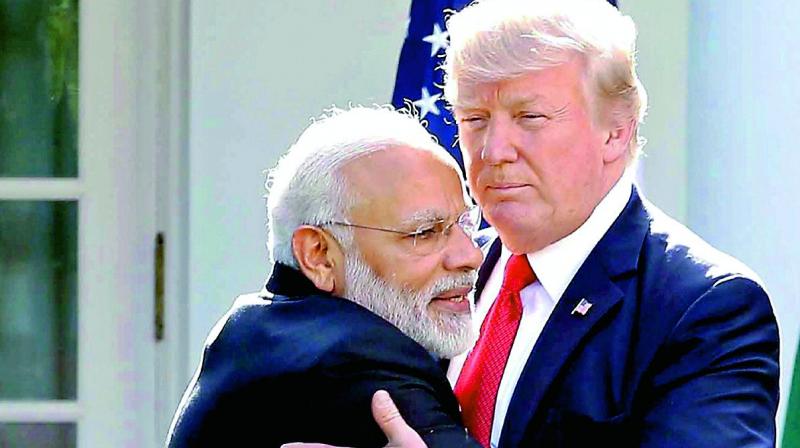US finally scraps trade sop for Indian exports

Hyderabad: Exactly 87 days after making his intention to scrap preferential treatment for Indian exports public, US President Donald Trump has terminated the favour granted to India under a 45-year-old US legislation.
“I have determined that India has not assured the US that it will provide equitable and reasonable access to its markets. Accordingly, it is appropriate to terminate India’s designation as a beneficiary developing country effective June 5, 2019,” Mr Trump said in a proclamation.
The US gives preferential trade treatment to 129 developing countries under the Generalised System of Preference (GSP) — the largest and oldest US trade preference programme. The beneficiary countries are allowed export eligible products — 4,800 products — to the United States without any import duty.
Under this law, the US President can end preferential treatment to any beneficiary country by providing a 60-day notice to the Congress. Though Mr Trump announced his intention on March 4, he acted upon his threat after 87 days.
Reacting to the US move, the Indian commerce ministry said that India had offered resolution on significant US requests in an effort to find a mutually acceptable way forward. “It is unfortunate that this did not find acceptance by the US,” it added.
In March, the Indian government had said that the US government’s move to withdraw duty concessions will not have a significant impact on the Indian exports to America.
Of 4,800 products covered under the US preferential trade system, Indian exporters have been using the concession only for 1,784 products.
In value terms, India had availed duty concessions only for over 10 per cent of its $50-billion exports— i.e. $5.6 billion — as most of the products that India exports fall under 1 to 7 per cent duty bracket.
To be specific, metal products, machinery and electrical equipment, chemical products would feel the pain the most because these products under the three product classifications make up over 60 per cent of Indian exports — $3.21 billion out of the total $5.6 billion — that availed US sop.
While this move may hit some of small businesses which export these products to the US under GSP, experts believe that some financial tightening could help the exporters to offset the impact. Some, however, feel that the industry would expect the Indian government to cushion the impact through its own concessions.
According to Madan Sabnavis, chief economist, CARE Ratings, “Indian exporters need to be pushed to become more competitive and look for more markets rather than depend on the US only. As long as there is implicit protection, there would be less drive to become self-reliant.”
India’s tough stance on US exports to India such as automobiles, medical devices, dairy products and agricultural goods appeared to have influenced Mr Trump’s decision to play hard ball with New Delhi. The trigger, however, is said to be restrictions on foreign eco-mmerce companies, which are expected to impact Amazon and Walmart.
Mr Trump has been highlighting variance in duty levied by India and the US and publicly mocked Prime Minister Narendra Modi for not doing enough to bridge the gap.

